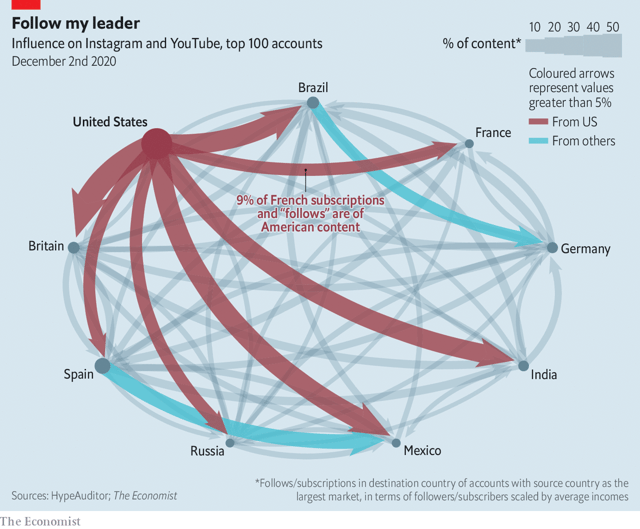Last week I made my case as to why I believe brands of the 21st century have latched on to the idea of values-based marketing. This new commercial philosophy embraces the belief that meaning and lifestyle are far more effective tools for economic growth than the marketing of physical goods. When a consumer is able to identify themselves with a certain idealized lifestyle that brand “X” is embodying, said brand has the ability to become the source of truth among its customers, one in which it actually has followers that will advocate for their product due to its stance on certain issues.
If this resembles some form of religious practice, it’s because it is.
This commercial philosophy goes head to head with religious and community ties, which have an entire "sedimentary history" that took centuries to build and shape itself that served for millennia as the relative source of the truth for all kinds of peoples. But the difference between them is that brands don’t have the permanence that religion and family have. Brands come and go, they shape themselves to whatever is in vogue at the time, whatever will yield the most growth. From an incentives perspective, companies are solely concerned with sales.
So, in today's world, dominated by global brands and democratized media channels that enable people to communicate with others across the world in real time, the importance of local communities and family values have gone down the drain. This approach to a "global" set of values, through which a teenager from a remote Brazilian village is as susceptible to the influence of Kim Kardashian as a millennial in New York, has created a state of confusion in society unlike anything we've ever seen before.
Communities that for millennia were driven by local realities, detached from global commercial incentives, are now being shaped by Western society's values of economic growth at all costs. Countries that took centuries to develop their own cultures and traditions, are now seeing their national identities being eroded by the forces of capitalism in a globalized economy.

Source: The Economist. “Social media are turbocharging the export of America’s political culture”. Jun 2021.
But this is not only a problem for remote communities, it is in fact having a greater impact on the youth living in these very Western societies pushing this commercial ideologies. Family structure and religion, which for so long served as educational pillars for the development of members in society, have been replaced by commercial entities that are only concerned with profit.
This postmodern transition highlights a core concept described by Isaiah Berlin—value pluralism, the idea that there are several values which may be equally correct and yet fundamentally incompatible with each other. In other words, different moral, ethical, cultural, or political values can be valid in their own right, but may conflict when applied in real-life situations. Importantly, these conflicts cannot be resolved by some overarching, higher order principle or value because no such universally valid principles exist. All values are culturally and historically contingent and none has a final claim to being the ultimate truth.
This stands in contrast to monism, which is the idea that all values can ultimately be reduced to one single principle or value. According to Berlin, monistic philosophies often lead to a disregard for individual liberty because they tend to justify the sacrifice of individual rights or desires for the sake of some higher value, such as a particular religious doctrine, a utopian vision of society, or the notion of a greater good. To put it another way, the postmodern world’s relentless pursuit for economic growth, paired with values-based marketing, has effectively given rise to a monolithic culture that grounds itself on commercial success.
Humans, who are prehistoric beings, are struggling to make sense of the world in these new fluid terms. When brands are pounding their chests as the saviours against climate change, there is an inherent conflict of visions that cannot be reconciled.
As described in Zygmunt Bauman's book Liquid Modernity:
“The rising levels of opulence translate as rising levels of consumption; enrichment, after all, is a value worth coveting in so far as it helps to improve the quality of life, but in the vernacular of the planetwide congregation of the Church of Economic Growth the meaning of 'making life better', or just rendering it somewhat less unsatisfactory, means to 'consume more'.”
The drive to ‘make life better’ that is inherent in all of us is at odds with ‘making the collective better’. When companies become the source of morality for the youth, ‘betterment’ takes place through consumption of novel products that promise to change you. Yet, the more you consume, the emptier you feel; the more you take, the more the planet has to give.
So, the question that always comes out of these philosophical digressions is: now that you know all of this, what are you going to do about it?
This is a classic question that derives from the pragmatic school of thought that emerged in the U.S. in the late 19th century. But most things in life serve no “practical purpose”.
At the individual level, there is absolutely nothing one can do. These forces are systematic, meaning there's a complex and overwhelmingly large tapestry of them that are making society behave this way. The number one being: if it’s not good for business, it serves no purpose.
By taking a stand against the “Church of Economic Growth”, brands would effectively be withdrawing themselves from the conversation, effectively choosing to stop engaging in capitalism. It's commercially pragmatic to abide by the values of economic growth, but at the expense of the individual—making it one of the great dilemmas of the 21st century.
PPA
Pedro Porto Alegre is a seasoned marketing professional with in-depth experience building brand and communications strategies for top-tier B2C and B2B organizations across Canada. His repertoire extends from crafting and executing integrated multi-media brand marketing campaigns to the commercialization of performance-driven innovations for multimillion-dollar and nascent brands alike.

